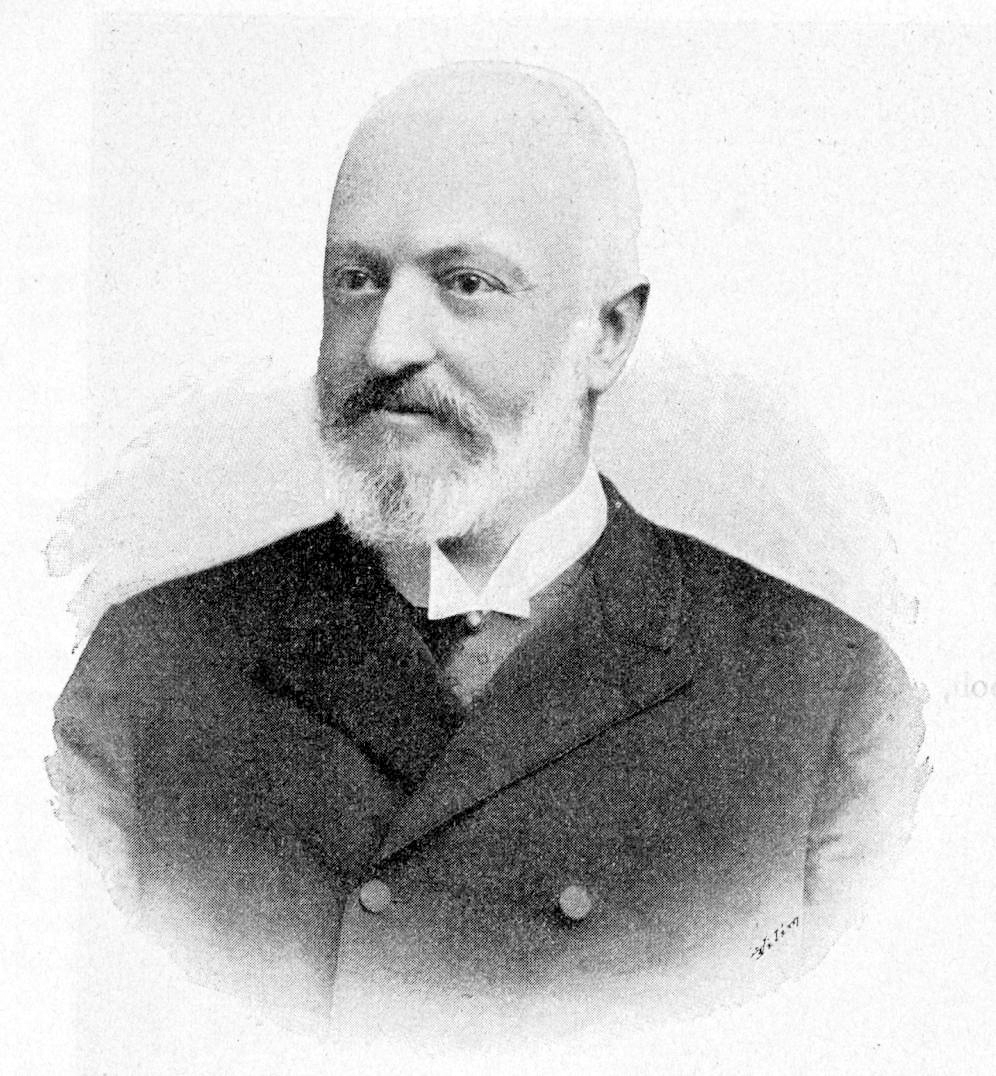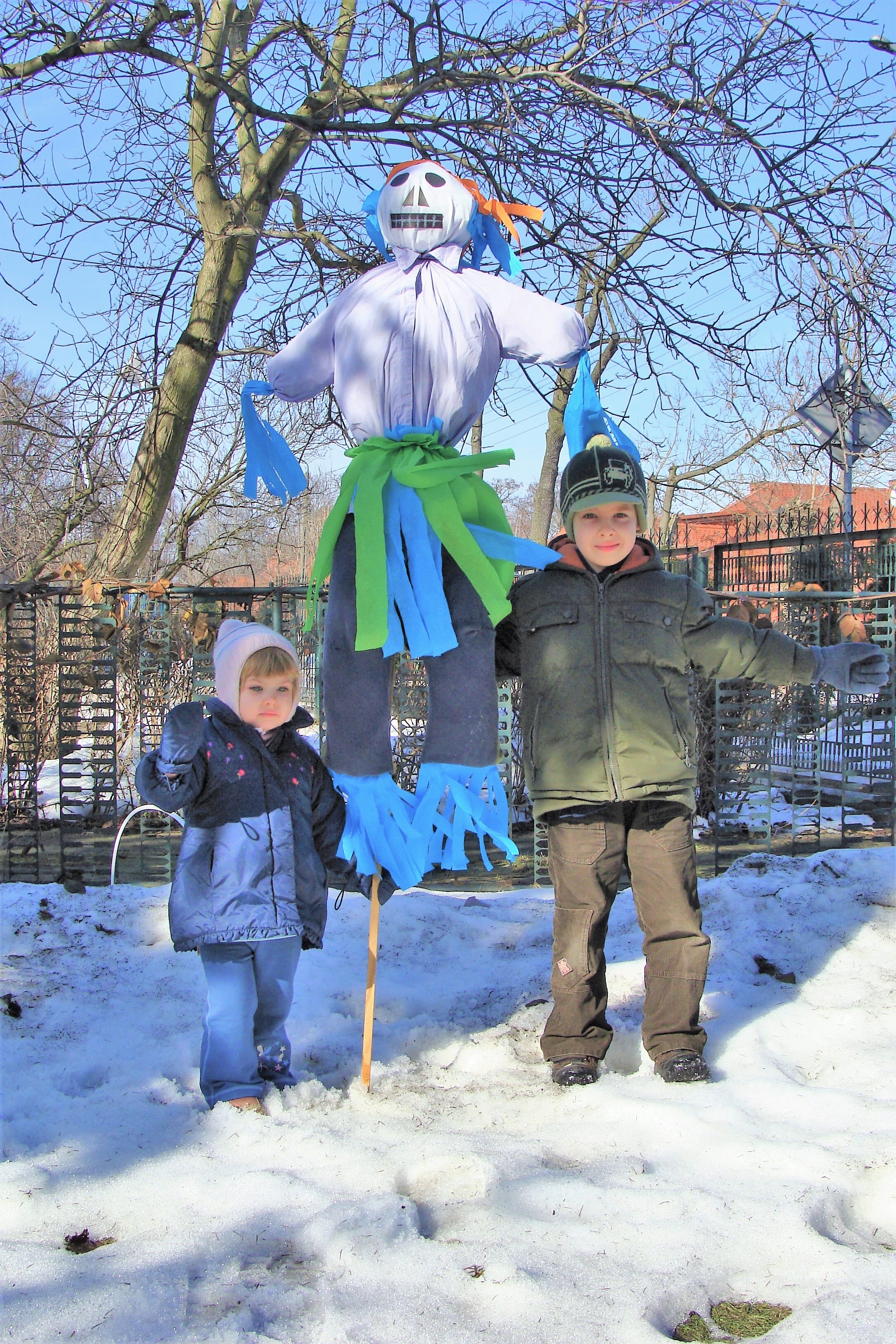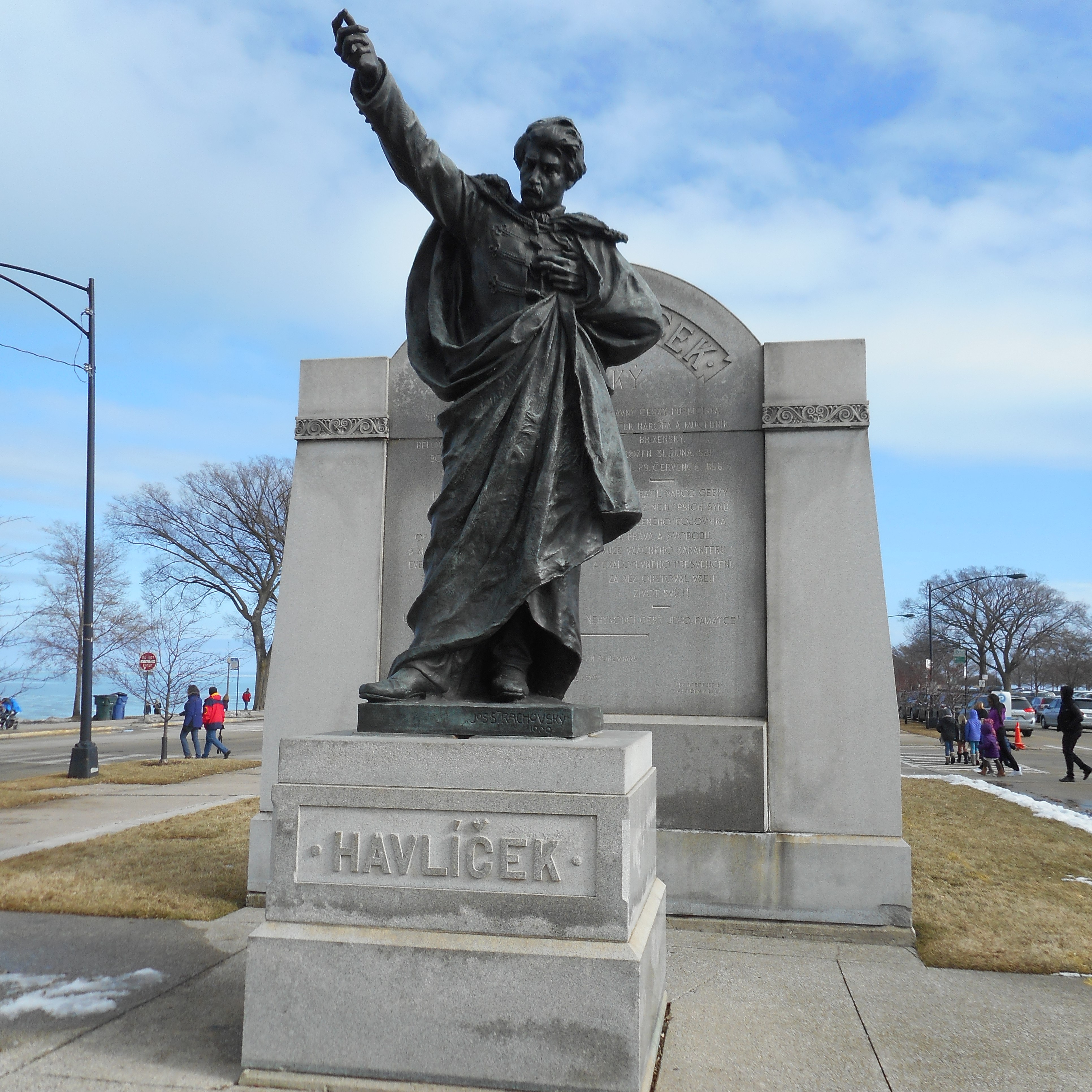|
Karel Sabina
Karel Sabina (pen names include Arian Želinský and Leo Blass) (29 December 1813 – 8 November 1877) was a Czech writer and journalist. Life Karel Sabina grew up in poverty as an extramarital child of a daughter of a sugar producing factory's director in the family of a bricklayer and a washerwoman. Sabina later claimed that he was an illegitimate son of a Polish noble. Studied philosophy and law, but did not graduate. In 1848 Sabina became one of the leaders of the Czech radical democrats, the founder of a secret radical political circle "Repeal" (the name inspired by Irish revolutionaries), a member of the National Committee and the Czech congress. Sabina published many articles (several of which were censored) to magazines during this period. Imprisonment In 1849 he was arrested for taking part in the " May Coup" (a plan to make an uprising, inspired by Bakunin, then present in Prague) and in 1851 sentenced to death together with 24 other men; but these sentences were c ... [...More Info...] [...Related Items...] OR: [Wikipedia] [Google] [Baidu] |
Karel Sabina 1871 Maixner
Karel may refer to: People * Karel (given name) * Karel (surname) * Charles Karel Bouley, talk radio personality known on air as Karel * Christiaan Karel Appel, Dutch painter Business * Karel Electronics, a Turkish electronics manufacturer * Grand Hotel Karel V, Dutch Hotel *Restaurant Karel 5, Dutch restaurant Other * 1682 Karel, an asteroid * Karel (programming language), an educational programming language See also * Karelians or Karels, a Baltic-Finnic ethnic group *''Karel and I'', 1942 Czech film *Karey (other) Karey may refer to: People * Karey Dornetto (fl. 2002–present), American screenwriter * Karey Hanks (fl. 2016–2018), American politician * Karey Kirkpatrick (fl. 1996–present), American screenwriter * Karey Lee Woolsey (born 1976), American ... {{disambiguation ja:カール (人名) ... [...More Info...] [...Related Items...] OR: [Wikipedia] [Google] [Baidu] |
The Bartered Bride
''The Bartered Bride'' ( cz, Prodaná nevěsta, links=no, ''The Sold Bride'') is a comic opera in three acts by the Czech composer Bedřich Smetana, to a libretto by Karel Sabina. The work is generally regarded as a major contribution towards the development of Czech music. It was composed during the period 1863 to 1866, and first performed at the Provisional Theatre, Prague, on 30 May 1866 in a two-act format with spoken dialogue. Set in a country village and with realistic characters, it tells the story of how, after a late surprise revelation, true love prevails over the combined efforts of ambitious parents and a scheming marriage broker. The opera was not immediately successful, and was revised and extended in the following four years. In its final version, premiered in 1870, it rapidly gained popularity and eventually became a worldwide success. Until this time, the Czech national opera had only been represented by minor, rarely performed works. This opera, Smetana's second ... [...More Info...] [...Related Items...] OR: [Wikipedia] [Google] [Baidu] |
Karel Hynek Mácha
Karel Hynek Mácha () (16 November 1810 – 5 November 1836) was a Czech romantic poet. Biography Mácha grew up in Prague, the son of a foreman at a mill. He learned Latin and German in school. He went on to study law at Prague University; during that time he also became involved in theatre (as an actor he first appeared in Jan Nepomuk Štěpánek's play ''Czech and German'' in July 1832 in Benešov), where he met Eleonora Šomková, with whom he had a son out of wedlock. He was fond of travel, enjoying trips into the mountains, and was an avid walker. Eventually he moved to Litoměřice, a quiet town some 60 km from Prague, to prepare for law school exams and to write poetry. Three days before he was to be married to Šomková, just a few weeks after he had begun working as a legal assistant, Mácha overexerted himself while helping to extinguish a fire and soon thereafter died of pneumonia. The day after his death had been scheduled as his wedding day in Prague. Mách ... [...More Info...] [...Related Items...] OR: [Wikipedia] [Google] [Baidu] |
Vilém Blodek
Vilém Blodek, born Vilém František Plodek (October 3, 1834, Prague – May 1, 1874, Prague), was a Czech composer, flautist, and pianist. Biography Blodek was born into a poor family and was educated at a German Piarist school in Prague. After studying with Alexander Dreyschock (piano) and at the Prague Conservatory (1846–52) with Antonín Eiser (flute) and Johann Friedrich Kittl (composition), he became a music teacher in Lubycza, Galicia (1853–5). On returning to Prague, he worked as a concert pianist and music teacher and, briefly, as second conductor of the Prague Männergesangverein, for which he wrote a number of patriotic choruses. In 1860 he succeeded Anton Eiser as professor of flute at the conservatory, and, as a basis for teaching, he wrote his own flute tutor (1861). He was active as a writer of incidental music for the German and Czech theatres: from 1858 onwards he wrote music for 60 plays and collaborated with Bedřich Smetana on music for the tableaux f ... [...More Info...] [...Related Items...] OR: [Wikipedia] [Google] [Baidu] |
Karel Bendl
Karel Bendl, or german: Karl Bendl, pseudonym: ''Podskalský'' (16 April 1838, Prague, Bohemia, Austrian Empire 20 September 1897, Prague) was a Czech composer. Life Bendl was born and died in Prague. He studied at the organ school, where he met and befriended Antonín Dvořák one year before graduating with honors in 1858. By then he had already composed a number of small choral works. In 1861 his ''Poletuje holubice'' won a prize and at once became a favorite with the local choral societies. In 1864, Bendl went to Brussels, where for a short time he held the post of second conductor of the opera. After visiting Amsterdam and Paris. In Paris, he became influenced by the stage works of Charles Gounod and Ambroise Thomas and especially by Giacomo Meyerbeer. By 1865, he was back in Prague where he was appointed conductor of the choral society known as ', and he held the post until 1879, when Russian (originally from Hamburg), includes engaged his services for his private b ... [...More Info...] [...Related Items...] OR: [Wikipedia] [Google] [Baidu] |
Braniboři V Čechách
''The Brandenburgers in Bohemia'' ( cz, Braniboři v Čechách) is a three-act opera, the first by Bedřich Smetana. The Czech libretto was written by Karel Sabina, and is based on events from Czech history. The work was composed in the years 1862–1863. Smetana and Sabina wrote the opera at a time of great Czech patriotism, with the pending opening of a new theatre for production of Czech operas in Prague. The opera received its first performance at the Provisional Theatre (or the "Interim Theatre"), Prague, on 5 January 1866, and the first performance was a success. The first UK performances were in April 1978 by Hammersmith Municipal Opera. The first professional production in the UK, conducted by Vilém Tauský, was not until 1994. Roles Synopsis :Place: Prague :Time: the 13th century, during the occupation of Bohemia by forces of the Margraviate of Brandenburg. Upon the death of King Ottokar II in the 1278 Battle on the Marchfeld, his widow Kunigunda had called in t ... [...More Info...] [...Related Items...] OR: [Wikipedia] [Google] [Baidu] |
Bedřich Smetana
Bedřich Smetana ( , ; 2 March 1824 – 12 May 1884) was a Czech composer who pioneered the development of a musical style that became closely identified with his people's aspirations to a cultural and political "revival." He has been regarded in his homeland as the father of Czech music. Internationally he is best known for his 1866 opera ''The Bartered Bride'' and for the symphonic cycle ''Má vlast'' ("My Fatherland"), which portrays the history, legends and landscape of the composer's native Bohemia. It contains the famous symphonic poem "Vltava", also popularly known by its German name "Die Moldau" (in English, "The Moldau"). Smetana was naturally gifted as a composer, and gave his first public performance at the age of 6. After conventional schooling, he studied music under Josef Proksch in Prague. His first nationalistic music was written during the 1848 Prague uprising, in which he briefly participated. After failing to establish his career in Prague, he left for Sweden ... [...More Info...] [...Related Items...] OR: [Wikipedia] [Google] [Baidu] |
Prodaná Nevěsta
''The Bartered Bride'' ( cz, Prodaná nevěsta, links=no, ''The Sold Bride'') is a comic opera in three acts by the Czech composer Bedřich Smetana, to a libretto by Karel Sabina. The work is generally regarded as a major contribution towards the development of Czech music. It was composed during the period 1863 to 1866, and first performed at the Provisional Theatre, Prague, on 30 May 1866 in a two-act format with spoken dialogue. Set in a country village and with realistic characters, it tells the story of how, after a late surprise revelation, true love prevails over the combined efforts of ambitious parents and a scheming marriage broker. The opera was not immediately successful, and was revised and extended in the following four years. In its final version, premiered in 1870, it rapidly gained popularity and eventually became a worldwide success. Until this time, the Czech national opera had only been represented by minor, rarely performed works. This opera, Smetana's second ... [...More Info...] [...Related Items...] OR: [Wikipedia] [Google] [Baidu] |
George Of Poděbrady
George of Kunštát and Poděbrady (23 April 1420 – 22 March 1471), also known as Poděbrad or Podiebrad ( cs, Jiří z Poděbrad; german: Georg von Podiebrad), was the sixteenth King of Bohemia, who ruled in 1458–1471. He was a leader of the Hussites, however, moderate and tolerant toward the Catholic faith. His rule was marked by great efforts to preserve peace and tolerance between the Hussites and Catholics in the religiously divided Crown of Bohemia – hence his contemporary nicknames: "King of two peoples" and "Friend of peace". During the 19th century, in period of the so-called Czech National Revival, he began to be praised (even somewhat idealized) as the last Czech national monarch (in terms of ethnic awareness), a great diplomat and a courageous fighter against the domination of the Catholic Church. In modern times he is remembered mainly for his idea and attempt to establish common European Christian institutions, which is now seen as the first historical vision of ... [...More Info...] [...Related Items...] OR: [Wikipedia] [Google] [Baidu] |
Jester
A jester, court jester, fool or joker was a member of the household of a nobleman or a monarch employed to entertain guests during the medieval and Renaissance eras. Jesters were also itinerant performers who entertained common folk at fairs and town markets, and the discipline continues into the modern day, where jesters perform at historical-themed events. During the Middle Ages, jesters are often thought to have worn brightly colored clothes and eccentric hats in a motley pattern. Their modern counterparts usually mimic this costume. Jesters entertained with a wide variety of skills: principal among them were song, music, and storytelling, but many also employed acrobatics, juggling, telling jokes (such as puns, stereotypes, and imitation), and performing magic tricks. Much of the entertainment was performed in a comic style. Many jesters made contemporary jokes in word or song about people or events well known to their audiences. Etymology The modern use of the English w ... [...More Info...] [...Related Items...] OR: [Wikipedia] [Google] [Baidu] |
Marzanna
Marzanna (in Polish), Morė (in Lithuanian), Marena (in Russian), Mara (in Ukrainian), Morana (in Czech, Slovene and Serbo-Croatian), Morena (in Slovak and Macedonian) or Mora (in Bulgarian) is a pagan Slavic goddess associated with seasonal rites based on the idea of death and rebirth of nature. She is an ancient goddess associated with winter's death, rebirth and dreams. In ancient Slavic rites, the death of the Goddess Marzanna at the end of winter becomes the rebirth of Spring of the Goddess Kostroma (Russian), Lada or Vesna representing the coming of Spring. Some medieval Christian sources such as the Czech 13th century Mater Verborum compare her to the Greek goddess Hecate, associating her with sorcery. 15th century Polish chronicler Jan Długosz likened her in his ''Annales'' to Ceres, the Roman goddess of agriculture (together with another Slavic goddess Dziewanna). Lithuanian, Latvian and some Estonian sources, dated between the 13th and 14th century, note the worsh ... [...More Info...] [...Related Items...] OR: [Wikipedia] [Google] [Baidu] |
Karel Havlíček Borovský
Karel Havlíček Borovský (; Borová, today ''Havlíčkova Borová;'' 31 October 1821 – 29 July 1856) was a Czech writer, poet, critic, politician, journalist, and publisher. Early life and education He lived and studied at the Gymnasium in Německý Brod (today Havlíčkův Brod is named after Borovský), and his house on the main square is today the Havlíček Museum. In 1838 he moved to Prague to study philosophy at Charles University and, influenced by the revolutionary atmosphere before the Revolutions of 1848, decided on the objective of becoming a patriotic writer. He devoted himself to studying Czech and literature. After graduating he began studying theology because he thought the best way to serve the nation would be as a priest. He was expelled after one year for "showing too little indication for spiritual ministry". Career After failing to find a teacher's job in Bohemia, he left for Moscow to work as a tutor in a Russian teacher's family: with a recommendatio ... [...More Info...] [...Related Items...] OR: [Wikipedia] [Google] [Baidu] |

.png)




